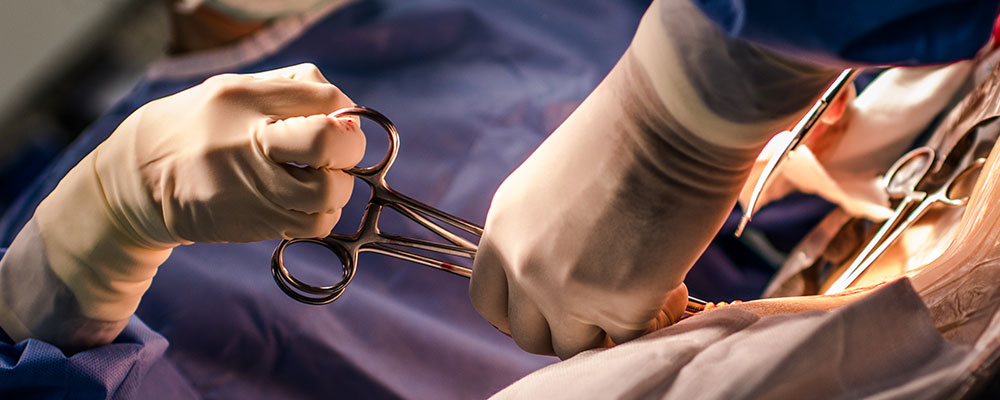Chicago, IL 60601
FREE CONSULTATIONS 312-462-4200
TOLL FREE 833-462-4200
Cesarean Delivery

Injuries to Children or Mothers During C-Section Delivery - Illinois Birth Injury Attorney
Childbirth happens every day in hospitals across the United States, and medical personnel are trained in procedures meant to prevent injuries during labor and delivery. If a child is at risk of injury during a vaginal birth, a Cesarean delivery (also known as a Cesarean section or C-section) may be performed. In this type of surgical procedure, an incision is made in the mother's abdomen, and the child is manually removed from the uterus.
When Is Cesarean Delivery Necessary?
If vaginal delivery would put a child or mother at risk of injury, doctors may recommend a Cesarean section. The procedure may be planned in advance, or a C-section may become necessary if certain issues occur during labor and delivery. Cases in which Cesarean delivery may be performed include:
- Breech birth - If the child is positioned feet-first, a C-section can prevent injuries from asphyxia or brain trauma that may occur during vaginal delivery.
- Placental abruption - If the placenta detaches from the uterus, the child may not be able to receive enough oxygen and nutrients. Cesarean delivery will allow medical staff to provide the infant with the needed care as it develops outside the womb.
- Placenta previa - If the placenta partially or fully covers the cervix, it may block the child's passage through the birth canal, resulting in complications during a vaginal delivery.
- Multiple fetuses - When a mother is pregnant with twins, triplets, or more, Cesarean delivery may be necessary in some cases, such as when children share a placenta or when a child is not in the correct position for vaginal delivery.
- Preterm labor - If the water breaks before the pregnancy reaches full term (known as premature rupture of membranes or PROM), or if other health issues result in premature labor, the child may be too small to pass through the birth canal safely. In these cases, a C-section can help prevent birth injuries.
- Pregnancy-related complications - Some maternal conditions, such as preeclampsia, may endanger the health of both the mother and the child, requiring Cesarean delivery.
- Labor and delivery complications - If labor stalls and is not progressing, or if there are signs of fetal distress, a C-section may be necessary. In cases involving issues such as uterine rupture or umbilical cord prolapse, an emergency Cesarean may need to be performed.
- Infections - Cesarean delivery may be used to help a child avoid the risk of contracting an infection such as herpes simplex virus or HIV from the mother during birth.
- Emergencies - Medical personnel are trained to carefully monitor a baby during labor and quickly carry out a C-section delivery if the fetal heart tracing indicates that the baby is in distress.
C-Section Complications
As with any surgical procedure, a Cesarean section carries some risks. Some issues that may affect a mother or child during a C-section include:
- Lacerations - The child may be inadvertently cut when incisions are made or when surgical tools are used. While these types of injuries are often minor, serious lacerations can result in nerve damage or hemorrhaging.
- Physical trauma - If a Cesarean delivery occurs before a pregnancy has reached full term, the child is at higher risk of experiencing serious bruises or fractured bones during the procedure. Skull fractures or trauma to the head can result in brain injuries.
- Breathing problems - Infants delivered through a C-section may experience respiratory distress syndrome or abnormally fast breathing (tachypnea).
- Medication injuries - The anesthesia administered to the mother during Cesarean delivery can cause a variety of complications, including low blood pressure, blood clots, and internal bleeding.
- Maternal injuries - During surgery, a mother may experience hemorrhaging, infections/sepsis, or damage to internal organs. In some cases, these injuries may result in maternal death.
- Delayed C-section - If doctors or nurses do not recognize signs of fetal distress or other complications during labor, a Cesarean delivery may not be performed in time to prevent serious injury to the child.
While Cesarean sections are regularly performed in hospitals, a wide variety of issues can occur during these procedures that can result in serious injuries to the child or mother. At the Birth Injury Law Alliance, we can examine the circumstances of your case and help you determine whether medical negligence played a role in injuries that occurred during a Cesarean delivery. To schedule a free consultation, contact us today at 312-462-4200.





